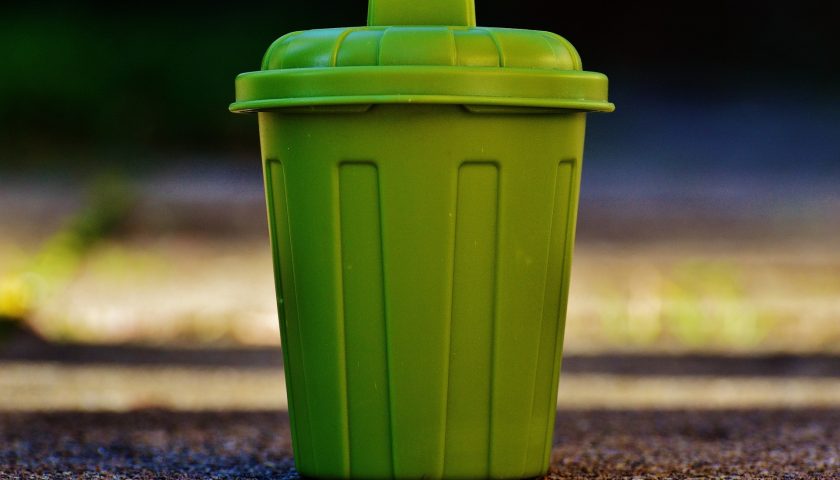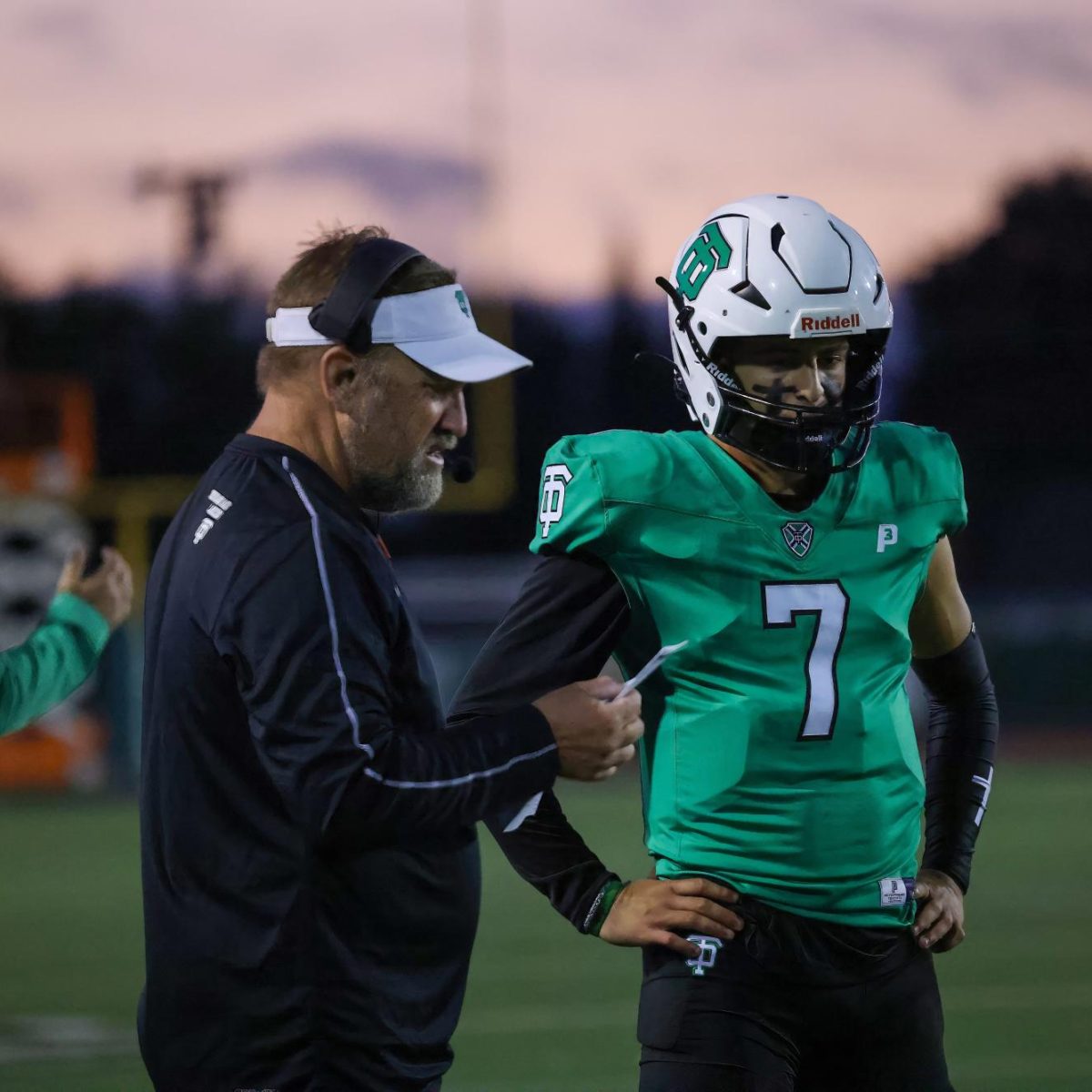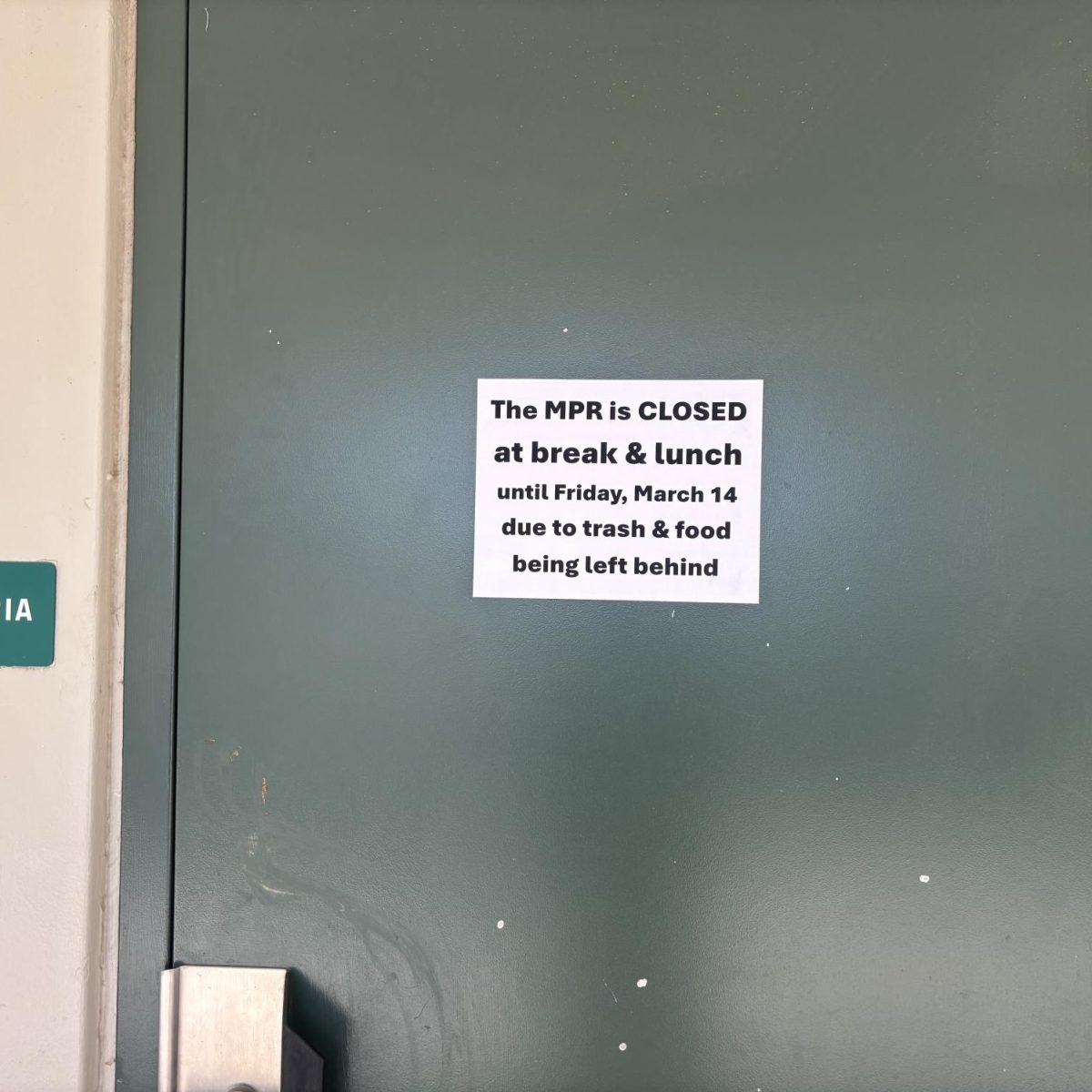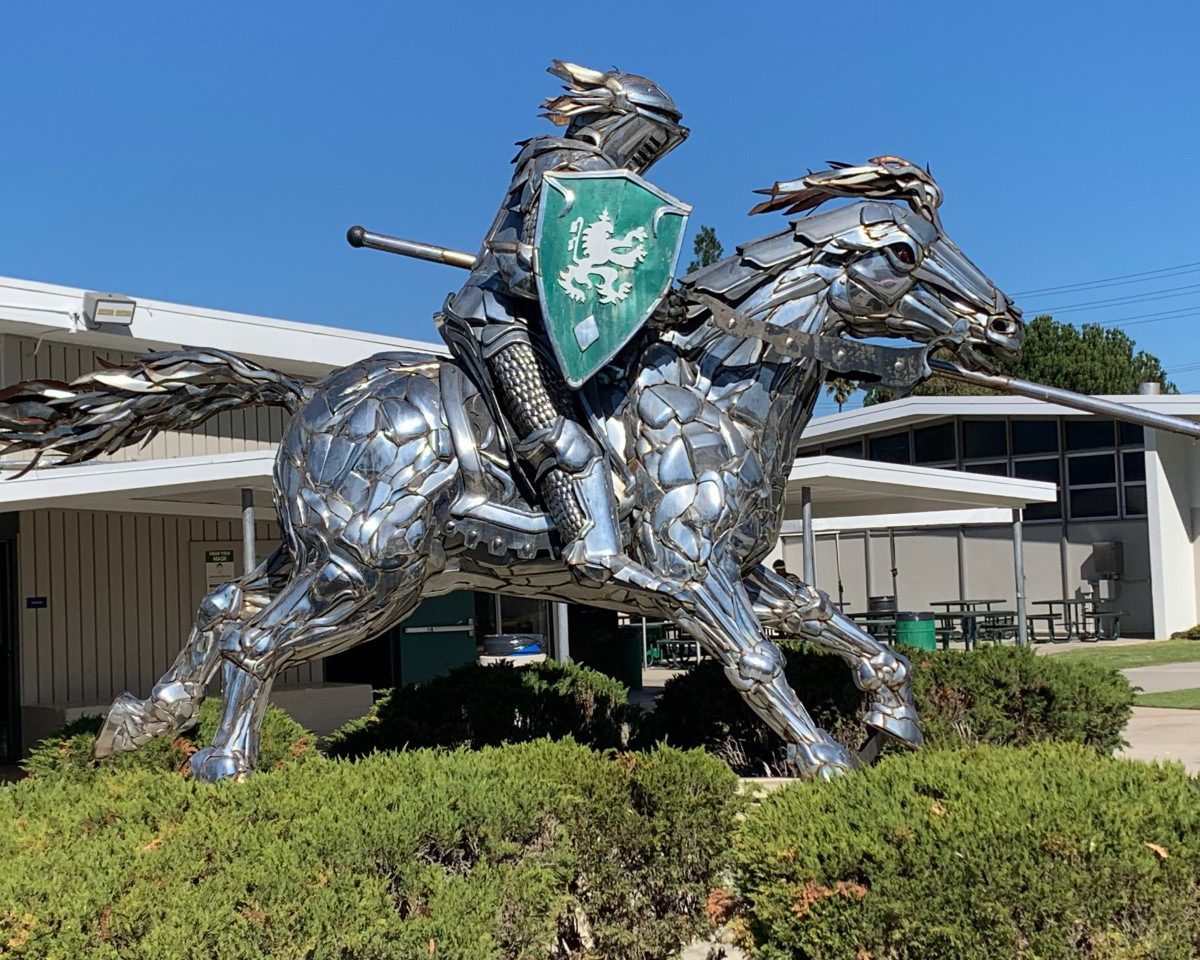With the beginning of the school year comes many new things. New classes, new teachers, and sometimes new brightly colored trash cans. Those new trash cans you see in the quad are not just a way to brighten up campus, but rather they are a simple way students can help the environment.
Those trash cans are specifically for fruit and vegetable waste that will be used for composting. The idea for these was created by the members of the Green for Green club on campus.
Green for Green was started last year by junior Ella Fortney to raise awareness on campus about environmental issues and how students and faculty can actively help with the problem.
“We are trying to promote environmental production, like throughout the school,” Fortney said. “But right now we’re focusing on getting the composting system set up.”
Fortney began composting at home and in her elementary school and wanted to bring it to TOHS as a way to help students live more eco-friendly lives every day they stepped on campus.
“Right now, not a ton of people are using the composting systems yet because no one knows about it or how to use them,” Fortney said. “We’re thinking about getting a speaker to come talk about it or putting it in the Lancer Lately so that people know how to use it on campus.”
As scientists discover more about the harmful effects of organic waste, environmental clubs, such as Green for Green, are becoming increasingly necessary all over the world.
Here’s the bottom line: The landfills are filled with biodegradable trash. When animal and plant based material sits in a dumping ground, they produce methane, a potent greenhouse gas. Knowing this, it is more important than ever to implement composting programs to reduce waste.
In April of this year, California established a new mandate aiming to reduce organic waste in landfills. The legislation requires companies to be smarter about what they put in the trash by creating compost bins. Expanding this outlook to school campuses can help revolutionize the public waste system.
As for TOHS, Green for Green has already begun reducing waste in the school.
Fortney believes that once students begin composting in elementary school, it will help them create eco-friendly habits that they can carry into middle school, high school, and eventually into college.
“If they’ve been composting since they were in elementary school, they will [do it] here, and then it will be more impactful,” Fortney said.
Her hope, along with the rest of the Green for Green members, is to raise awareness in students of how simple it is to live eco-friendly.
“I think the main thing is being aware because you don’t know how to approach problems if you’re not aware,” Fortney said. “I would say just doing research because there are plenty of easy ways you can protect the environment just from your own home like being more conscious of what you’re throwing away and not buying products that aren’t eco-friendly.”
According to Fortney and junior treasurer Mahathi Rao, helping the environment is not hard at all, but rather can be as simple as changing the trash can students throw their uneaten food in.
“We’re not saying become vegetarian, but we’re saying look at the different options,” Rao said. “Instead of putting your trash in into a trash can, you’re putting your food into the compost bin, and everything else you have into the trashcan or recycling bin.”
Fortney and Rao hope to get others to join Green for Green during Club Hello Day on October 7 to continue to help with the composting system and to volunteer with the current members to make sure the food that students and faculty throw away ends up in the garden to be used and not in landfills to be thrown away.
“[Composting] couldn’t be simpler. You don’t really have to adjust anything. And we have our compost bins right next to the trash cans, so it’s not like another trip [away from] when you would normally be going, Fortney said, “and you’re helping the environment in [multiple] ways.”
With the new trash cans on campus, Thousand Oaks High School will be a greener and more progressive school in terms of reducing and using waste from food. The campus will become cleaner and more efficient right before the student’s very eyes all because of a series of separate trash cans to be used now and help reduce waste in landfills in years to come.
Written by: Natalie Pagan and Catherine Valinote






